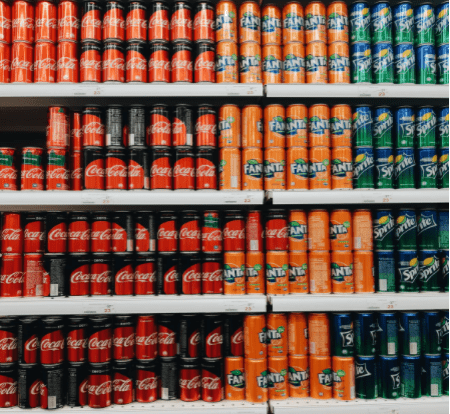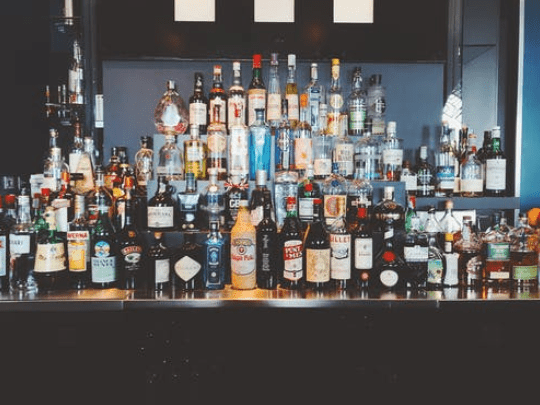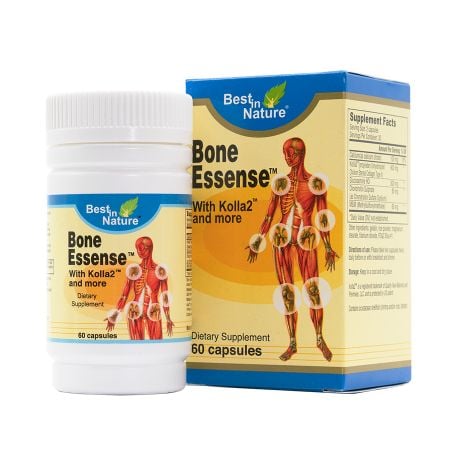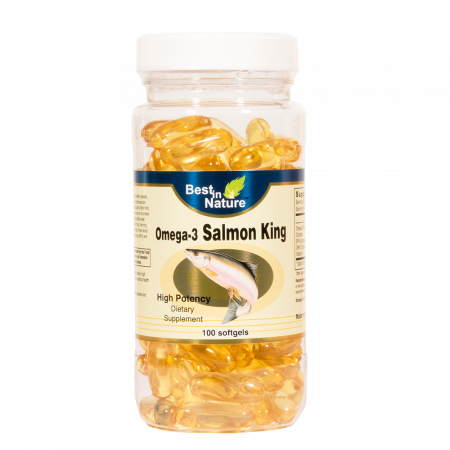
Reviewed and Updated: October 29th, 2024
7 min read
Osteoporosis is a type of bone disease that results from the body losing bone and being unable to produce enough to replace it. This disease can cause bones to become weaker and break more easily. Simple falls can often cause fractures for those with Osteoporosis while severe cases can result in broken bones from minor bumps or even sneezing. It is a condition that must be monitored and managed closely. Said management often includes specific dietary changes and making sure to stay away from dangerous foods that can negatively impact your ability to absorb your needed amounts of calcium. Let’s take a look at a list of foods you’ll want to avoid if you have Osteoporosis or just want to ensure optimal bone health.
Foods High in Salt
Sodium (the primary component of table salt) causes calcium excretion from the body, which is harmful to your bones. Keep away from anything high in salt content, such as fast foods, chips, and crackers, and try to stay clear of processed foods. Canned vegetables and soups- aside from also being generally less nutritious than their fresh or homemade counterparts- contain added salts that you should also work to avoid. Try to limit your daily intake to no more than 2,300 mg of salt whenever possible. Feel like you’re missing some flavor? Experiment with different spices, herbs and lemon juice to make your meals more healthy and flavorful.
Surplus Vitamin A
Vitamins are good for you right? Well, there can be too much of a good thing. High levels of Vitamin A in the body have been associated with adverse effects on bone health since Vitamin A stimulates bone breakdown thus increasing the risk of bone fractures. If you’re not taking vitamins and supplements, you probably don’t have cause for concern. However, those taking multivitamins or fish liver oil supplements should consult their doctor to ensure they’re not taking in excess Vitamin A.
Related: 16 Ways To Build and Maintain Healthy Bones
Liver
Liver contains significant amounts of Vitamin A (as discussed above) and its consumption should be avoided by those with Osteoporosis due to the risk of promoting bone fractures. The United Kingdom’s National Health Service came out publicly advising that people should not eat liver more than once per week. Keeping liver consumption to once a week- or avoiding liver altogether- can help to ensure that your body’s store of Vitamin A doesn’t go above the medically recommended level and begin causing problems.
Legumes & Beans
Beans possess healthy attributes that can be beneficial for women experiencing Osteoporosis. However, they are also very high in phytates, which are compounds that can affect your body’s ability to absorb calcium effectively. You can reduce the phytates in your beans by soaking them in water for two to three hours before cooking them with fresh water. This will be especially important for vegans and vegetarians who eat legumes and wheat bran more often.
Carbonated Beverages

Research suggests that caffeinated soft drinks like colas and other sodas may contribute to bone loss. Scientists are still working to discover precisely why soda may damage bones. Some researchers have suggested that phosphoric acid- a prevalent ingredient in many soda brands- may cause bones to weaken gradually over time due to an imbalance in phosphorus/calcium ratio that results in lower bone density leading to fractures. One Framingham Osteoporosis study conducted back in 2006 found that those who drank three or more sodas a day had up to 4% lower bone density. Other scientists have stated that phosphorus in soft drinks isn’t likely to have such impacts on the body, but there isn’t enough data to provide us with a definitive answer.
Whatever the impact of carbonated beverages on bone, sugary sodas have long been known to impact people’s health negatively -even diet or light sodas, and they add no essential nutrients to your regular diet. So consider reaching for a glass of water instead next time you’re feeling thirsty.
Looking to protect your bones and joints? See if Bone Essense is right for you.
Wheat bran
Wheat bran is an extremely nutritious food that serves as a great source of fiber, protein, and various antioxidants. Wheat bran is also recommended to those looking to decrease their risk of certain cancers and cardiovascular disease. However, it’s important to note that 100% wheat bran can also reduce the body’s ability to absorb calcium from other foods effectively due to the phytates it contains. For example, pouring wheat bran into your morning breakfast cereal may decrease the amount of calcium that your body can absorb from the milk.
Related: Types Of Exercise And Why You Should Do More Than One
Caffeine
While you don’t need to give up on your favorite tea and coffee altogether, it’s essential to keep an eye on the amount of caffeine that you drink. According to the National Osteoporosis Foundation, consuming more than three cups of caffeinated tea or coffee a day on average can decrease your body’s ability to absorb calcium and contribute to bone loss over time. Limiting caffeine intake to 400 mg per day is considered healthy and will not affect bone loss. Studies show that 800 mg of caffeine in a day can worsen osteoporosis. Keep in mind that 8 oz of coffee is equivalent to 70-140 mg of caffeine. Cutting back on daily caffeinated pick-me-ups and restricting your intake to less than three cups per day can help you avoid this.
For optimal bone health, replace that second or third cup with another beverage. We always recommended water, but occasionally orange juice with calcium and Vitamin D, fat-free plain or chocolate milk, and fruit smoothies made with fat-free yogurt can be healthy alternatives. Just watch out for sugars and fats with these.
Added Sugars
Avoiding foods with excessive amounts of added sugar is a must for those with Osteoporosis, even though it can be challenging. Excess sugars increase the risk of bone loss by increasing excretion of calcium and magnesium in the urine, reducing absorption of calcium, impairs the formation of bones, and increases bone breakdown. Cakes, cookies, juices, pasta sauces, granola bars, canned soups, and so many other products contain surprising amounts of added sugar. Replacing these with healthier alternatives like walnuts, pumpkin seeds, pistachios, seafood, and almonds can prevent bone loss and other conditions like Type 2 Diabetes.
If you want to shop for a healthy canned soup, TODAY put together an article with a few tips on what to look for here.
Soy (sometimes)
Soy supplements and products like tofu, edamame, and soy-based beverages contain helpful bone-building proteins that can assist in protecting older women from Osteoporosis. However, it’s essential to keep an eye on the amount of soy you are ingesting, as it also contains plant compounds that can inhibit calcium absorption into the body, similarly to caffeine, wheat bran, and carbonated beverages. A study by the University of Connecticut suggested that the absorption of calcium in a soy protein diet was lower compared to a meat protein diet affecting calcium balance resulting in decreased bone density and higher fragility of bones.
Related: 8 Best Brain Food Snacks For Focus And Productivity
Alcohol (in excess)

The Mediterranean Diet has popularized the idea of alcoholic beverages being useful for your health- In fact, moderate intake of wine or beer has been shown to have positive correlation with bone health.
In contrast, chronic and heavy alcohol consumption can lead to bone loss. As such, it’s essential to both limit and monitor your overall alcohol consumption. The Dietary Guidelines for Americans has defined “moderate” alcohol consumption as being up to two drinks per day for adult men and one drink per day for adult women especially post menopause. Keep in mind that one drink is equivalent to either 12 oz of regular beer, 5 oz of wine, or 1.5 oz of distilled spirits.
Bonus: Foods to You Should Eat
Nutrition is critical to help strengthen, protect, and build your bones. The three most important elements to add are calcium, vitamin D, and protein. Calcium-rich diets help to strengthen and protect your bones, vitamin D helps with calcium absorption, and protein reinforces the structural integrity of your bone matrix. Increasingly, there’s also interest in collagens for maintaining joint function as we age.
Some great sources of these nutrients are:
- Nuts
- Dairy Products
- Meat
- Eggs
- Fish
- Fortified Foods
What Nutrients to Focus on
It is important to feed your body the nutrients it needs in order to maintain optimal health. The same goes for your bones, especially if you have or are at risk of osteoporosis. Focusing on a nutrient-filled diet will help maintain proper bone health and prevent bone diseases. The top nutrients focus on for bone health include:
- Calcium
- Vitamin D
- Protein
- Vitamin C
- Iron
- Magnesium
- Vitamin K
- Zinc
[Read: The Top 9 Vitamins and Minerals for Bone Health]
Bottom Line
For those who are at risk of or experiencing Osteoporosis, it is important to moderate or steer clear of the items on this list when possible. Lifestyle changes are difficult but essential for maintaining a good quality of life for years to come. Have you found any tasty, yet healthy substitutions for items on this list that we didn’t mention? Tell us about them below!
Looking to maintain a healthier lifestyle? Best in Nature has a full line of health supplements to cover your needs. Check them out here.
Disclaimer: The article is for informational purposes only and not to be taken as medical advice. If you’re suffering from Osteoporosis and concerned about your diet, consider consulting a registered nutritionist dietitian.
© 2024 Best in Nature All rights reserved







Validate your login
Sign In
Create New Account